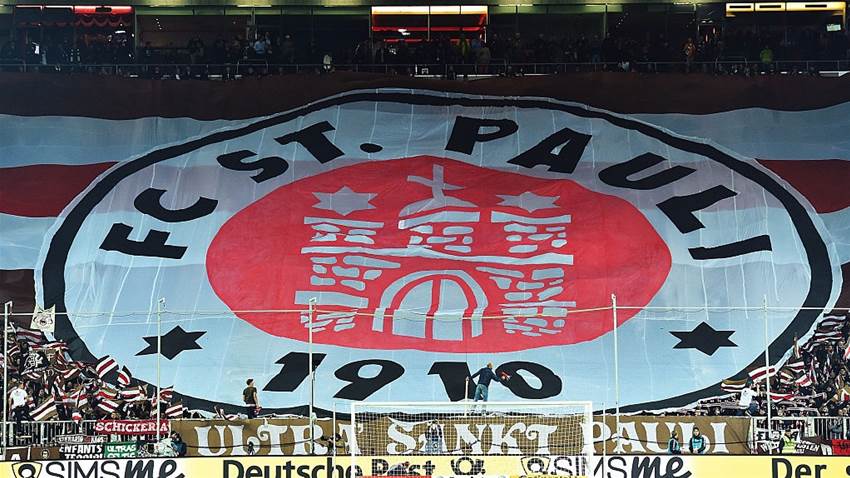We all want another Western Sydney Wanderers, but how can A-League expansion clubs get it right? The answer may be hidden within one of Europe’s most unusual teams.
The club now has one of the most vocal active-supporter movements in Germany winning promotion to the Bundesliga in 2011 and building such a loyal fan base along the way that relegation in 2014 barely registered a blip on their support.
The obvious difference between Germany and Australia’s football culture - the tradition and dominant popularity of the sport - is one of the most interesting aspects of St. Pauli’s success. They’re a club that has managed, en masse, to recruit a formerly non-football audience by offering them more than just a game.

22-year-old Yasmin Rosenberg is not your average football fan. A peroxide blonde, tattooed, Berghain-regular chemistry student originally hailing from Malmo, Yasmin had never watched a football match before 2012, when she was led to St Pauli by a group of like-minded friends. Now, she’s a convert and regular 2.Bundesliga attendee.
“I became a fan because for me it is not only important how good, or let’s say how entertaining a club is, but also the things a club does outside a football game,” she said.
“If the club is political and in the same political wing, then how they act as a platform to spread important messages outside of football - like fighting for LGBT rights or helping with refugees - makes a huge difference.
Word of mouth and match-day experience become incredibly important for a club with a marginal existing supporter base, which is why Yasmin believes St. Pauli is a positive role model for A-League clubs to follow.
“I found out about St. Pauli from a friend of mine who was in the same political group as me when I was 14 or 15-years-old. He always wears their shirt so I googled the club and found out about the social programs St. Pauli were part of.
“I watched some games and slowly became involved. I actually attended my first match when I was 18 and ever since then I’ve been a diehard fan.”
The cliche that football is a way of life runs true in Germany - St. Pauli fans come from all walks of life, are based around the country and many barely watch other football teams. But come match day, they’re united in full voice; banners, chants and memberships galore, indistinguishable from the most passionate ultras in the world.
The club is now estimated to have 11 million fans just in Germany, despite never winning a national first division title and spending only eight years in the top flight in their 108-year history.
For Australia, a country where the proliferation of other sports minimises the capacity for football culture to move into the mainstream, taking inspiration from St. Pauli’s ability to attract a brand new audience and turn average people into ardent supporters sounds too good to be true.
Truth is, it takes some substantial risks.
Politics and sport
It takes guts to build a club’s identity around a certain political ethos and there are many arguments against sport becoming a playground for social activism - not least the propensity for crowd violence, which St. Pauli hasn’t been immune to.
Yet the club’s steadfast ideals; gender and racial equality, LGBT rights and investment in support for homelessness and low income workers are shared by the majority of mainstream Australia.
They’re also shared by many, if not all A-League clubs, which leads Yasmin to argue that perhaps, Aussie clubs just aren’t flaunting it enough.
“As long as the club’s activities are hyped, St. Pauli’s success could be replicated in a country like Australia,” she insisted.
“If a team clearly expresses what they want to do or on which political side they stand, they gather similar people around them. So it could work almost anywhere.
“The atmosphere at St.Pauli matches is amazing. I get tickets right where the hardcore fans are sitting because St. Pauli tries to make the ticket prices as low as possible so everyone can watch the game.

“So everyone is singing and cheering and it’s just a great experience. The main thing I love about attending matches is everyone becomes best friends for 90 minutes because the team unites us.
"I cheer and hug total strangers and it doesn’t feel odd in anyway, which is an experience hard to replicate outside of sport, so I have a lot of friends who have become big fans of St. Pauli, even though they aren’t particularly into football.”
Related Articles

Treble-winning Mariners enter ALM's greatest debate

Popovic expected to make call on Victory future













